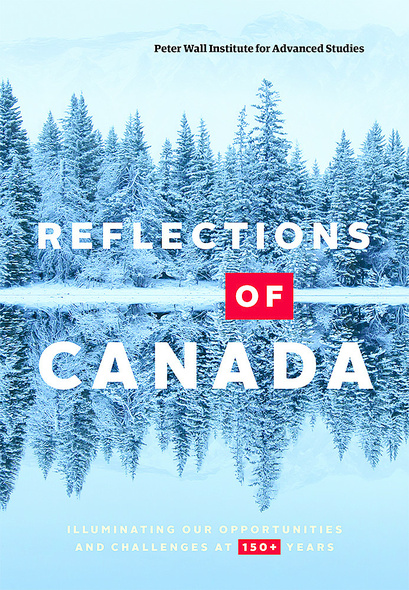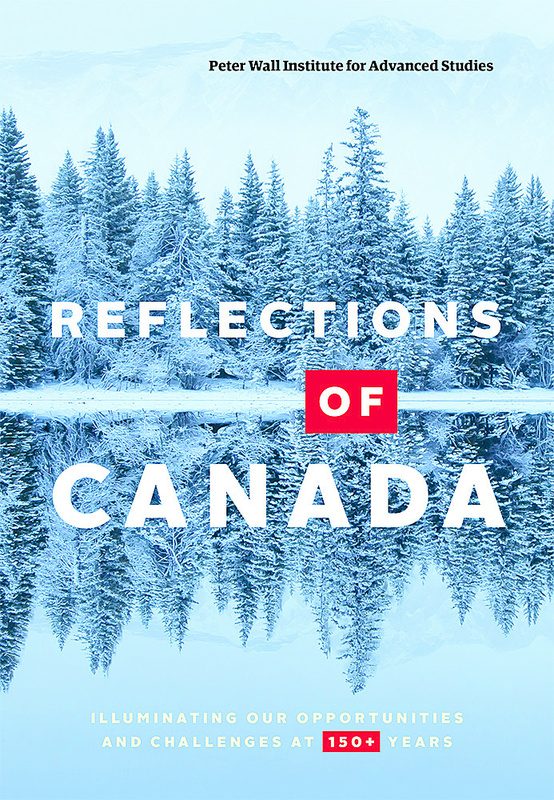
Reflections of Canada
Illuminating Our Opportunities and Challenges at 150+ Years
Canada’s leading writers, researchers, and public intellectuals peer into the country’s future in the provocative essay collection published in the 150th year since Conferderation.
Reflections of Canada – intelligent, passionate, provocative – is a book with opinions as diverse as Canada. Leading thinkers take a stand on some of the most pressing issues facing Canada as it turns 150. Reflections of Canada inspires the reader to form her own opinions on subjects as big and thorny as health and aging, technological change, arts and culture, climate change and resource use, Aboriginal reconciliation, and multiculturalism
The contributions are as diverse as their subjects: George Elliott Clarke has submitted an original poem; renowned political scientist Max Cameron an essay on democratic reform; and UBC Museum of Anthropology director Anthony Shelton a strongly worded opinion piece about the inequitable funding of arts institutions in this country. The written pieces are accompanied by provocative photographs selected from a national photo competition. Each piece explores how our understanding of critical issues has changed over the past 150 years, and includes a call to action for how we should grapple with them over the coming decades
A book of lively, respectful debate, Reflections of Canada reaffirms the place for public discussion of major societal questions.
The Peter Wall Institute for Advanced Studies at the University of British Columbia is committed foremost to excellence in research; its goal is to stimulate collaborative, creative, innovative interdisciplinary research that makes important advances in knowledge.
A guiding principle is that excellence and truly innovative research are achieved in a highly collaborative international research environment, where UBC scholars have sustained opportunity to exchange ideas with national and international scholars, to work together on innovative research, develop new thinking that is beyond disciplinary boundaries, and engage in intellectual risk-taking.
The Institute respects diversity of perspectives and backgrounds, research embedded in the community and integration of multimodal and expressive arts as an important component of research across all disciplines.






